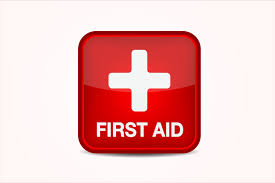
What are the different types of first aider in the workplace?
Every employer in England has to protect its staff by providing the right first aid equipment and trained personnel to deal with illness or accidents in the workplace. There are two types of first aider: an emergency first aider is trained to give emergency first aid to a colleague who becomes ill or injured at work, while a first aider is qualified in the same way but can also give first aid for specific illnesses and injuries.
What you need to know
There are no set rules about how many trained first aiders a workplace should have, as it depends on the type of work and where you are located. Employers should carry out a first aid assessment to decide whether they need to train staff in first aid and how many.
The Health & Safety Executive has a checklist for employers, with employers responsible for making sure that whoever trains their staff is competent. They can choose between voluntary first aid training from charities such as St John Ambulance, voluntary approval schemes such as an accredited trade body, an awarding organisation qualification, or independent training.
There are many emergency first aid training courses available from established providers, such as tidaltraining.co.uk/emergency-first-aid-training-courses.
If your workplace is low risk, such as an office, an emergency first aid at work course is appropriate, as it will train staff how to respond to everyday health emergencies and administer the right treatment.
A first aid at work course is a three-year qualification that trains people to quickly respond to an emergency in a higher-risk environment, such as a factory, where staff could be at risk of losing limbs or even their lives. Those working in workplaces with children, such as a school or nursery, can attend a paediatric first aid course.
Ongoing training
Once an employer has identified how many staff need to be trained and they have received the appropriate training and certification, it is important that they receive refresher training regularly to keep their skills up to date.
